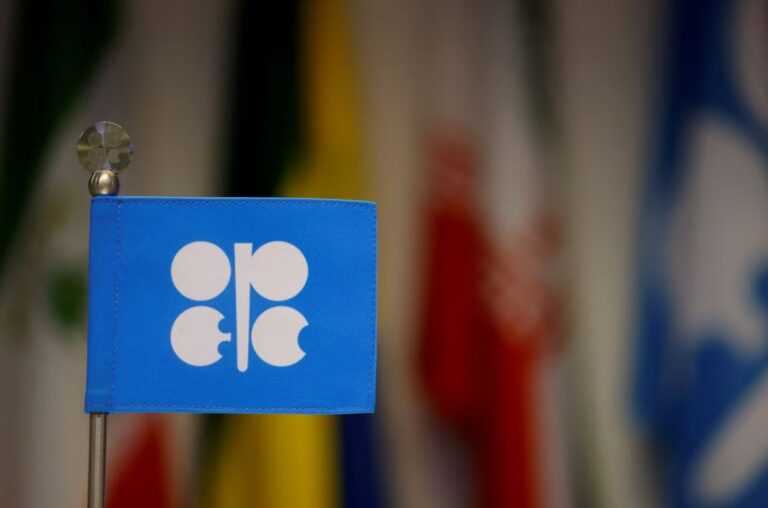OPEC has been an integral part of the global oil market for decades. It is a cartel that sets and regulates global crude oil prices by controlling production, distribution, and reserves.
But what are the top OPEC countries, who are its members and rivals, and how have they evolved as power players in the oil market?
Table of Contents
What is OPEC?
OPEC, which stands for the Organization of Petroleum Exporting Countries, is a cartel made up of 14 countries that collectively control an estimated 73% of the world’s oil reserves and 44.4% of global crude oil production.
These nations are Algeria, Angola, Ecuador, Equatorial Guinea, Gabon, Iran, Iraq, Kuwait, Libya, Nigeria, Qatar, Saudi Arabia, the United Arab Emirates and Venezuela. Other countries that are not members of OPEC but have significant influence in the oil market include Brazil, Canada, Mexico and Russia.
The purpose of OPEC is to coordinate oil production and pricing between its member nations. This, in order to maximize their collective profits.
History of OPEC
OPEC was founded in 1960 in Baghdad, Iraq. The original purpose of the organization was to establish a stable oil market and promote cooperation among its member countries. During the 1970s, OPEC increased its power as it took advantage of rising demand for crude oil. Thus leading to an increase in prices.
This led to tensions between OPEC nations and non-OPEC nations, with some countries using military force to disrupt supply lines. During the 1980s and 1990s, OPEC began to lose its power due to a decrease in demand for oil combined with increased competition from non-OPEC countries.
In recent years, however, OPEC’s power has been increasing as it has successfully imposed production cuts in order to maintain oil prices and limit supply.
Read also: These are the 10 biggest oil companies worldwide
How OPEC’s decisions regulate crude oil prices?
The decisions made by OPEC could have a substantial effect on world crude oil prices. The group’s members own over 81% of the world’s oil reserves and produce around 44% of the world’s total crude oil. As a result, OPEC has the power to manipulate and affect oil prices through its decisions about output.
Changing its production limit is one of the most frequent ways for OPEC to have an impact on crude oil prices. OPEC will decide on a specific production level and then change it as necessary to keep the commodity’s price at the intended equilibrium level. In order to maintain stable prices for crude oil, OPEC seeks to maintain a balance between supply and demand.
Because of the decreased worldwide supply when OPEC lowers its production limitations, this may result in higher oil prices. On the other hand, if OPEC raises its production caps, it may result in a drop in oil prices as there will be more supply.
For instance, in 2008 OPEC announced a production cut of 4.2 million barrels per day to lower the world’s oil supply and increase crude oil prices. This, as a result of the Great Recession’s effects on the economy.
On the other hand, OPEC responded by raising its production quotas by 2.2 million barrels per day in April 2020 after the coronavirus pandemic precipitated a sharp dip in demand for oil products. Which resulted in a drop in world oil prices.
By managing its production levels, OPEC can help regulate the global crude oil market. And, ensure that prices remain at an acceptable level. This helps to ensure stability in the industry and provides greater security for both producers and consumers of crude oil.
How OPEC’s decisions influence gas and oil stocks
Stocks of fuel and oil can also be impacted via OPEC actions. As oil and gasoline expenses climb as a result of OPEC nations’ settlement to reduce production, gas and oil shares are expected to benefit. The shares of gas and oil, on the other hand, are possible to go through if OPEC contributors figure out to increase output due to the fact the value of these commodities would rise.
In order to limit the extra supply that had accrued over the preceding years, OPEC determined to decrease production through 1.2 million barrels per day in October 2018. This is an instance of how this has been done. Due to this choice, fuel and oil inventories increased as crude oil costs rose. Thus resulting in larger profits for the groups involved.
Future of OPEC & its influence on the crude oil prices
Although OPEC has historically had a considerable impact on the price of crude oil on a worldwide scale, this power may be fading. This is due to greater competition from other nations. Keeping control of the market and setting pricing is becoming harder for OPEC. This is due to the emergence of additional countries as big players in the oil sector.
The confidence and unity among members has decreased due to claims of cheating on production quotas. Despite difficulties, OPEC remains a powerful group affecting oil prices worldwide. It seems probable that it will continue to play a significant role for many years to come.
Overall, OPEC is an important force in the global oil industry. Its decisions have a direct impact on the price of crude oil. And, its influence can be felt throughout the world. OPEC will likely continue to play a major role in determining global prices for many years to come. However, it may face challenges from other countries in the future.
Read also: Major oil and gas companies triplicated their gains due to Russia-Ukraine war












